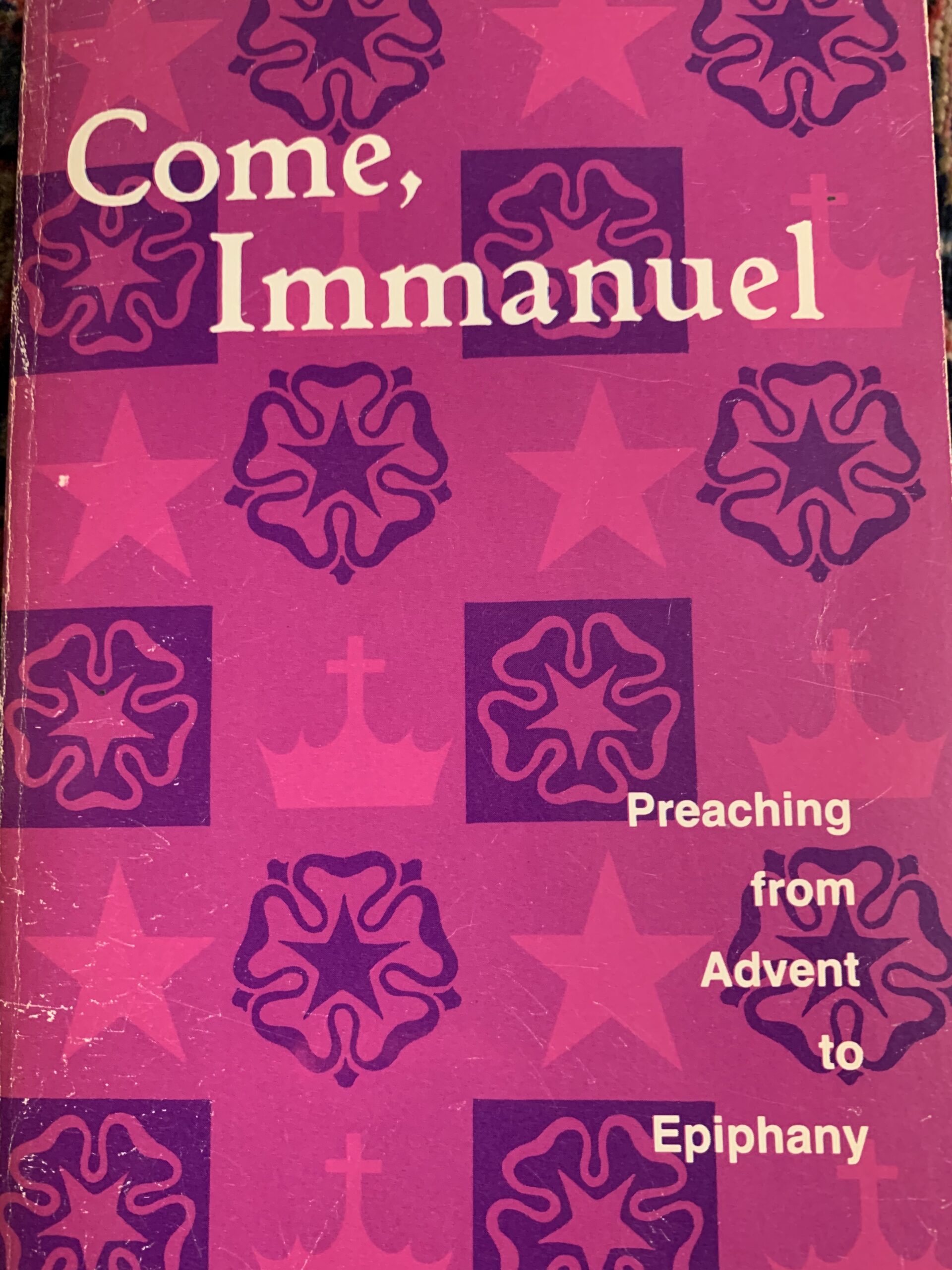
Editors Note: The following is an excerpt from the introduction to the sermon collection Come, Immanuel: Preaching from Advent to Epiphany, ed. Richard Caemmerer, Sr. (Concordia Publishing House, 1968). The entire introduction and collection is worth reading and meditating on, but these excerpts are particularly instructive and encouraging for those who preach during these holy days. We thank our many preachers who lead us into the holy mystery of God’s salvation through the sacred story given to us in his Word. Merry Christmas!
THE MEANING OF PREACHING
Let the preacher remember at the outset what the function of the parish sermon in a Christian congregation is. It is not a religious address designed to give peace of mind and edification in general or to merge comfortably into a sleep hour of worship. In the language of the church it is a means of grace, an event by which God Himself proposes to grasp the inner lives of His people and direct them into closer relation to Himself and fuller service, on His behalf, to other people. Through the centuries the Roman Catholic Church has listed seven sacraments, or activities, mediating grace. The Reformation referred to two (sometimes adding Holy Absolution), defining them as practices instituted by Christ through which the forgiveness of sins, achieved by the atonement on the cross, is conveyed to the Christian believer. They are Holy Baptism and the Eucharist. Christians are not accustomed to speaking of the Sacrament of Holy Preaching, but well they might. For preaching in the Biblical sense, the proclaiming and applying of the redeeming work of Christ to men, is a power God Himself employs and to which Jesus Christ commissions His preachers so that His people in every age may receive the gift of the Holy Spirit, gain and grow in faith, and be equipped for every good work. … Preaching should not be merely the speech of the preaching beating on the eardrum of the listener. Every member of the worshiping Christian congregation is to share in this message, its reception, and its utterance. Just as Christians share the body and blood of their Lord with each other in the Holy Communion, so each Christian is speaking the words of the sacred lessons and the application of preaching with his fellow listeners. For this is the meaning of the church in the place: people who through their Word spoken by their pastor and preacher are mutually strengthening each other and witnessing the grace of God to each other and to newcomers who may be present with them.…
CHRIST
All the accents of Advent merge in one reality: Jesus Christ. At the outset of the church’s year of worship and preaching this theme becomes paramount. Whereas later seasons of the church year allow a variety of uses to which the figure of Christ is put—either as exemplar for the hearer’s conduct or as resource for his faith and life—in this season the example of Jesus is a lesser accent. For here Jesus stands forth as the object of faith and loyalty, the one planned by the Father before He ever made the world, to be Redeemer by His own coming into the world as the sacrificial Lamb whose death would cover and cancel the sins of the world.…
FAITH
Through all the above accents a pervasive note has been that of faith—the faith which the Christian worshiper is to have and in which he is to grow as he begins a year of worship, which is sustained by the Gospel of the Christ, and which is shared in worship and nurture of God’s people.
Advent puts the faith of the believer into special focus. It is not just subscription to doctrines of the church, although these doctrines are a source of nurture for faith, but it is clinging to God, trusting that He will keep his promises, yearning to find God’s love and power in daily life now and in the ultimate unfolding of God’s mercy at the Final Judgment.
The Gospel thus becomes not that which faith accepts with more or less reluctance and difficulty but that which feeds and nurtures faith. For it is the Gospel of God’s plan conceived before there was a world, now brought to pass in His Son at the cost of His incarnation and death, now proclaimed by God’s rejoicing people to one another and their world, and proclaimed by their preacher.
CHRISTMAS
Spasmodically the Christian church gets a bad conscience about the sudden shift from the penitence of a violet season to the hilarity of the white, and so it experiments with making the violet longer or tincturing the white with violet. Preachers will complain to their people that they have suddenly become too earthly at Christmas or Easter and were not sufficiently spiritual beforehand. They fear that Christmas, sold out to the merchants, is too disfigured by fatigue to mean anything to adults.
This need not be. Preachers can have a good conscience about the sentiments that attach to the Babe in the stable, the glory in the night, the panting of the shepherds—provided that they can make God’s whole loving intention reasonably clear to their people. Let the sermons be short and glowing: let them talk about sin and grace, human death and God’s forgiveness in completely applied terms, for here is God’s visual aid of having love for His people, His own Son coming down to bear their lot and die for their sins.
The first Christmas was good for those people who were looking for it. It had not happened yet, and so the first one had the virtue of novelty. Christmas today is good for those people who are looking for it. What is really Christmas, under the mercantile pressure and the housekeeping fatigue, is likewise pretty new, and the preacher will have to work to make it clear.…
With planning, the Christmas cycle can be kept from repetitiousness; for the goals involve adoration and praise, faithfulness in waiting, loyalty to God’s lordship in Christ, the new life befitting the Atonement, the telling of the Good News, the nurture of the Christian’s sonship.


Leave a Reply
You must be logged in to post a comment.